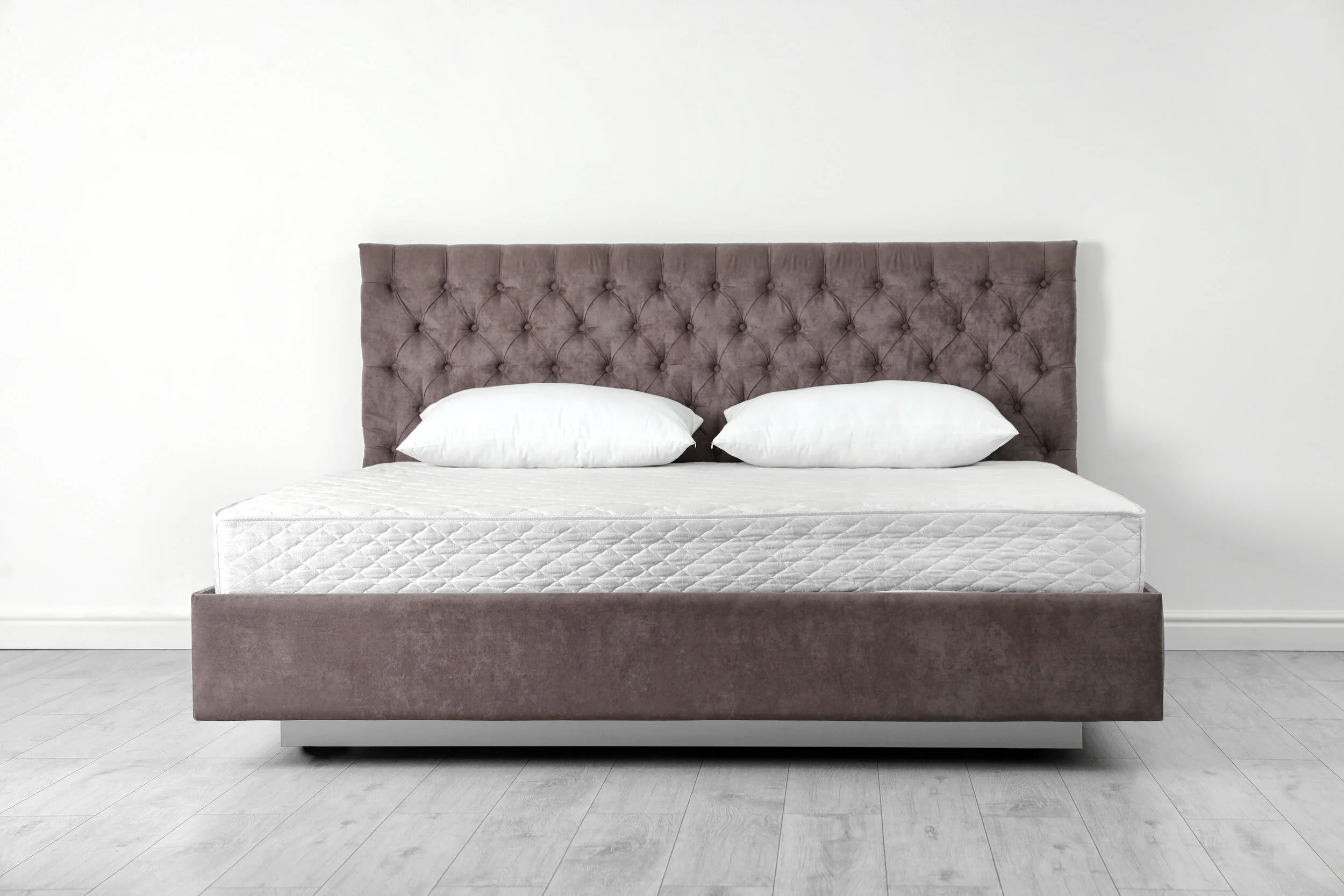Finding a mattress that suits all of your needs — and your bank account! — can be a daunting task. There are so many to choose from and there’s a major range of price differences. It’s confusing and challenging. So if you are currently facing this big investment, I want to help ease the load.
Let me walk you through how to choose the mattress that’s best for your body and your needs — as well as your budget.
Choosing a Mattress That Works For You
Shopping for a mattress can be similar to seeking out your next “go-to” clothing brand. If you’re tall, you may lean towards brands that offer additional length. Likewise, if you’re petite, you find brands that fit and match your body type.
So, what about choosing a mattress?
Whether you’re tall, small, heavyset, or even pregnant, there’s likely a perfect mattress for you. The bottom line and ultimate goal in choosing the best mattress is that it gives you the proper alignment and support you need to preserve a healthy spine.
What do I need from my mattress?
“Should I get a firm one? A soft one? What about memory foam?” These are just some of the questions you might have when deciding on a new mattress.
The most important thing is comfort and support.
The average person will spend nearly 230,000 hours asleep throughout their lifetime, so having a place to rest that alleviates the toll gravity takes on your body is of the utmost importance.
Go for a test drive.
Just like buying a car or any other big investment, you’ll want to take a “test drive” of your mattress before you commit. Many mattress companies these days (like Casper, Amerisleep, Purple, to name a few…) offer anywhere from 30-to-120-day trial periods that you should absolutely take advantage of.
What if I can’t afford it?
The hard truth is that you get what you pay for — and a cheap mattress is going to produce cheap results. You really want to make the investment in your health on this one, so be sure to do your homework. Obviously if you’re reading this blog, you’re already ahead on the homework part — so give yourself some extra credit for that!
Find out what you CAN spend. Then get creative.
First, you’ll want to figure out what your budget looks like. A great-quality mattress can cost anywhere from $800-$3000, depending on the size you need. You should plan to spend a large chunk of change on this one. The good news is that, if you invest in a good mattress, it should last you 8-10 solid years, so that’s like spending $100/year for great sleep (which is worth it, trust me.)
PRO TIP: Make sure to check for promo codes online before buying.
Many of these companies have codes out there that can save you 15-30% on a new mattress! A little googling can easily save you $200 to $600 (and maybe more!), depending on what you go for. I find that Retail Me Not typically has a great index of promo codes that are regularly updated and dependable.
Also, sign up for several mattress company newsletters. I know it’s not fun to get spammed, but many companies offer 10-15% off your first purchase simply by subscribing to their newsletter. Once you buy your mattress, you can always unsubscribe.
Context is everything.
Next, you’ll want to think about your sleep environment. Ideally, you should be creating a sleep environment that is conducive to sleep (you can read all about that on my blog post here). Are you looking to upgrade to a bigger bed now that your partner moved in or now that you’re fostering a new pet who likes to cuddle? Do you need a softer bed for sciatic pain? Are you trying to create more room to spread out your limbs (especially if you’re tall)?
It seems obvious, but these are all items to keep in mind while you shop in order to find something that really fits your needs. The larger the mattress, the more expensive it will be — but again, your sleep is worth the investment.
Always read the fine print!
Like any big investment, make sure you know all the details before you commit. Take full advantage of the sleep trial and double-check the company’s return policy. You’ll want to give the mattress a 2-to-3-month test run, if possible, and confirm that it plays nice with your body overnight. As I mentioned, many companies now offer a trial period where you may return or exchange your mattress for a better fit, if needed. Some even offer returns up to 120 days.
PRO TIP: If you might return it, make sure you know the return instructions.
There are some companies that require original packaging or you may incur a fee.
What is the best position for sleep?
Let’s get one thing straight – not even the best bed in the world will protect your posture if you sleep like a pretzel.
Out of the three main sleep positions (side, back, and stomach-and-side), I recommend sleeping on your side in order to rest more comfortably and sleep more soundly. Do this with your legs slightly bent towards your chest to help alleviate lower back and hip pain. If you suffer from sciatica, piriformis syndrome, or other lumbar, pelvic, and lower body pains, try sleeping in fetal position. It will take the pressure off your lower spine. (Note: if you sleep with a partner, this may cause you to take up more of the bed, so a larger mattress may be better suited to your needs.)
Pick a firmness that best corresponds to your sleeping position. You may find that a firmer mattress provides better alignment and support for your spine. But too-firm a mattress can sometimes create joint discomfort. If you’re a side sleeper, you don’t want something that’s pushing on your hip, pelvic or shoulder joints too much. Instead, you want something that's softer on your joints, but firm enough to keep your spine aligned.
Goldilocks may have been on to something with the too-soft-too-firm judgment after all…
The Importance of Sleep
Look, I get it, sleeping comes much easier to some people rather than others. But quality sleep is so important for both mental and physical health. Here are just a few of the benefits of good sleep that should encourage you to invest in your rest:
Assists consolidation of memory, including remembrance of facts, as well as procedural memory (i.e. learning how to play the piano)
Improves mood and decreases stress
Controls the production and/or actions of hormones like growth hormones, hormones that regulate appetite control, and insulin
Helps lower blood pressure and heart rate, which benefits the cardiovascular system
Removes toxins that may predispose to Alzheimer’s dementia from the brain
It’s easy to take our sleep for granted and to convince ourselves that because it’s “just sleep”, it doesn’t affect our lives too much.
That’s just simply untrue.
Investing in your sleep is an investment in your health. Just like buying a prescription, or paying for doctor’s visits, your sleep is worth your time, your money, and your attention.
I hope that these tips will help you the next time you’re faced with the decision to invest in your rest.
When the mattress isn’t the issue…
Sometimes, you can take every tip in the book, and you still can’t sleep. I know — I’ve been there myself. There may be something else at play, and I will help you to find out what it is.
Schedule your complimentary discovery call with me so I can learn about your situation and help determine what’s going on.
Let’s turn those sleepless nights into some of your best rested nights.
If you’d like more tips, you can read more articles on improving your sleep in my sleep blog. I have a ton of great resources.
Or if you're interested in working with someone one on one, I would love to help. You can schedule your free discovery call right here →
My mission is to help you get the rest you deserve to be your best.
Sweet Dreams…
Kelly Murray is a certified sleep coach and an award-winning pediatric sleep consultant based in Chicago offering sleep coaching services nationwide.





